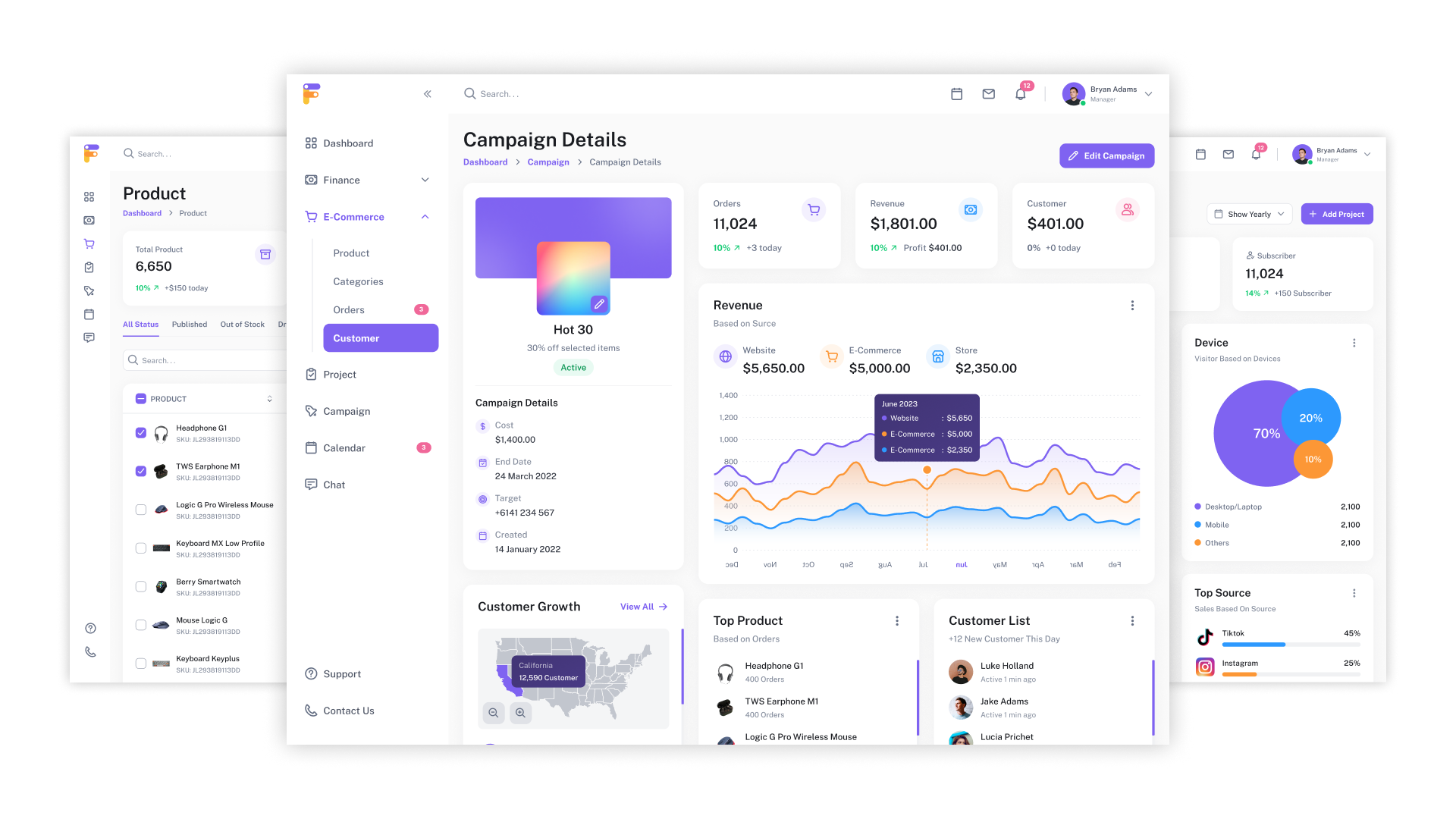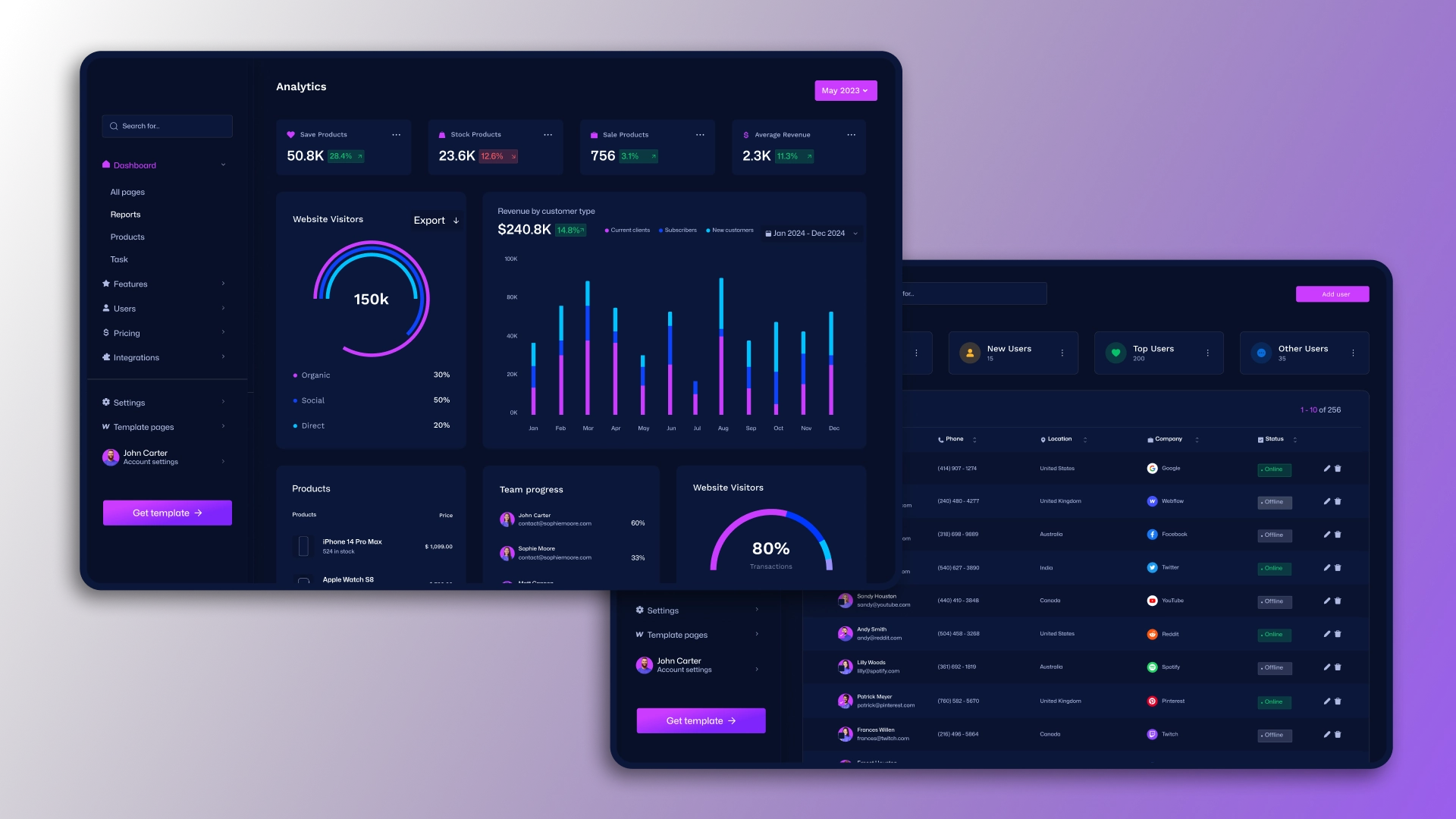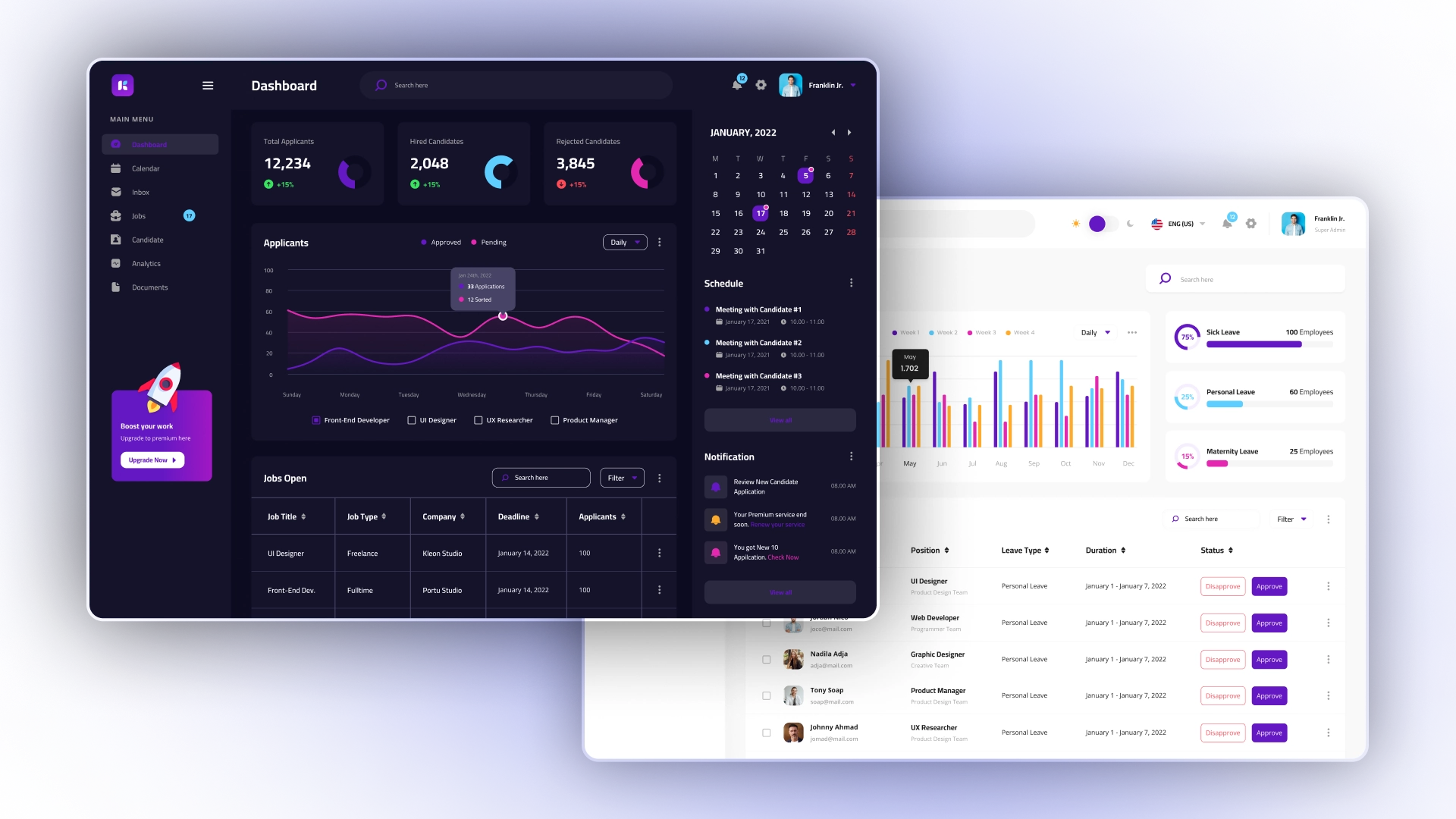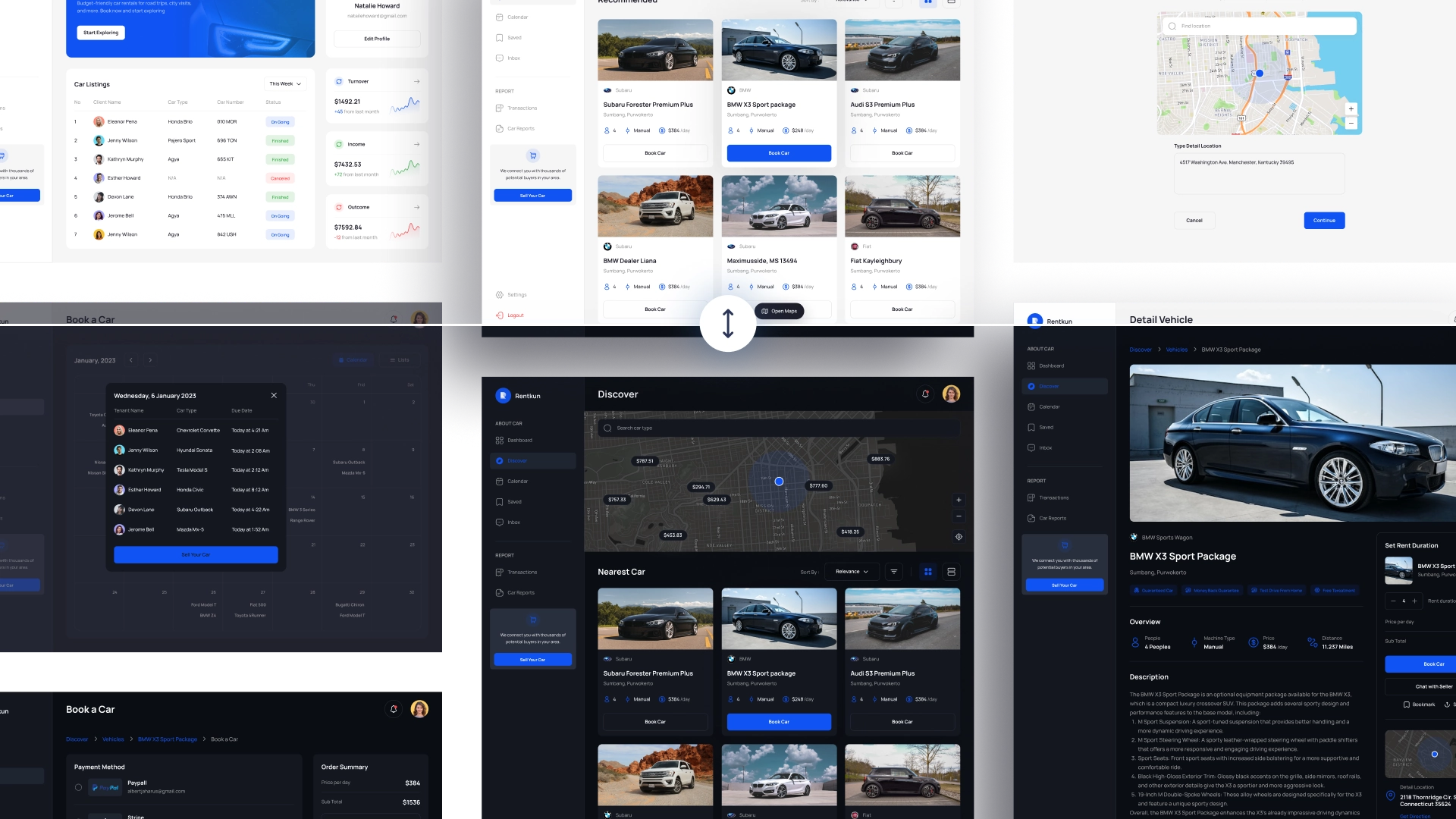









Development of individual CRM
A CRM system is an important tool for any business. It simplifies the interaction of departments, automates routine tasks and captures the history of interaction with customers: their needs, sales progress and transaction history. There are many ready-made systems on the market that can be bought and implemented in processes in just a few days, but often companies prefer to order the development of individual CRMs, even though it takes more time and resources.
In this article, we will talk about how custom CRMs are better than "boxed" ones, and how such solutions help businesses in practice.
What tasks does CRM solve?
A CRM system is a program for monitoring and managing customer relationships. Its main goal is to help companies improve interaction with the target audience, increase sales, improve customer service and optimize marketing costs.
Let's consider the main tasks that CRM helps to solve:
- Facilitates work with the customer base . All client data is stored on the virtual cloud and securely protected, so it is extremely difficult to lose it. At the same time, the customer base is as manageable as possible: it can be segmented, a clear structure can be implemented, access can be assigned to it by roles, and separate marketing activities can be launched for each segment.
- Increases sales . CRM automates processes, so managers spend less time processing leads. They connect with customers faster and know their needs better, because the system shows the history of interaction with each consumer. People appreciate such attention, so they will contact the company again and again.
- Does not allow loss of leads . Requests from various sources are instantly recorded in CRM and assigned to a specific manager, so no customer contact will be lost.
- Collects analytical data . CRM collects and consolidates all data on working with customers: how many leads are in work, where they are in the sales abyss, at which stage the most applications are screened, how long it takes from the first contact to closing the deal.
- It helps to evaluate the effectiveness of managers . The system keeps track of employees' working days, shows how many leads each of them processed during the reporting period and with what percentage of conversion. This helps to determine the efficiency of the staff and to distribute the workload correctly.
- Improves advertising companies. CRM helps you plan, launch and track the results of advertising campaigns, as well as analyze customer data to create more targeted and effective marketing strategies.

What are CRM systems?
There is no clear classification in this matter, but most often CRMs are divided by the level of functionality, and adaptability to business into ready-made, or as they are also called, "boxed" CRMs and individual solutions. Let's talk about the difference between them.
Ready systems
These are standardized products designed for use in many companies and niches. They can integrate into processes only superficially and do not take into account the unique needs of each company. What you need to know about them:
- They have a large number of redundant functions that complicate work with the system and overload the interface.
- They work according to the SaaS model and require a monthly fee for the provision of services.
- Have integration limitations.
- They are supplied with closed source code and do not give companies the opportunity to refine the functionality to their needs. The development of such CRMs is carried out unilaterally only by system providers.
- Some CRM tools are difficult to master without special knowledge.
On the other hand, a ready-made system is quickly implemented in the business, so it may be enough in the initial stages of the company's development. After all, you will gain experience, understand the principle of CRM and determine which functions you lack, so that you can take this into account in individual development.
What is the difference between custom CRM
Custom CRMs are developed individually, taking into account the specifics and features of a specific business. It is designed for use only in your company, therefore it does not contain unnecessary functionality and fully corresponds to the logic of internal processes. Of course, developing such a system requires more time, effort and investment, but in return you get:
- Maximum integration with your business and services you already use at work: website, social networks, ERP, IP telephony, accounting programs, etc.
- A convenient and minimalistic interface in which everything is in its place. There are no standard modules that you do not use, so it is much easier to understand such a CRM. This means you will have to spend less money and time on staff training.
- Unlimited number of users. You add to the system as many personnel as are necessary for the successful operation of the company without any additional payments.
- No need to buy tariff plans. After the completion of the development, the CRM is completely at your disposal.
- The functionality of an individual CRM system can always be changed. You don't have to wait for software vendors to implement a business-critical feature. Instead, you decide which modules will be implemented and when.
In short, individual CRM is a universal tool that will be equally useful for small, medium and large businesses. Its use is especially relevant if your company faces scaling difficulties or when solving routine tasks takes a lot of time and requires automation.

Where to find a custom CRM developer
Let's say you decide to implement a custom CRM in your business. Excellent, consider half the work already done. All that remains is to find a qualified company that can implement your idea at a technical level. Where to get it? Let's figure it out together.
First of all, we should note that for the development of such a project it is better to contact the services of companies, and not individual freelancers. The fact is that creating a CRM will require a whole team of specialists: designers, UI/UX designers, front-end developers, back-end developers and QA engineers. Therefore, it is much easier and faster to hire a coordinated team with relevant experience than to look for individual freelancers, spend on team building, management and process control.
To choose the optimal outsourcer, we recommend relying on three important criteria:
- Experience . Study the portfolio of the potential contractor. If the company has already developed CRM in the past, it probably knows all the features of such projects and pitfalls, which will avoid many problems.
- Reviews . See what previous customers have to say about the company, what challenges they faced and how they overcame them. It is best to look for real and honest reviews on various rating sites.
- Consultations. Contact the outsourcing company and find out what technologies it plans to use, how the development process is organized, and what stages it will consist of. If the contractor cannot give clear answers, it is better not to choose him.
How CRM development is organized at AVADA MEDIA
Each team builds work processes in its own way, so we will tell you how everything is arranged in our company. CRM development consists of 5 stages:
- Collection of information. We conduct an introductory meeting, study how the client's business is organized and determine: project tasks, the composition of modules, roles and functions of the future CRM system.
- Projecting . Using the received data, we create an interactive prototype of the project, which allows you to understand how the final version of the product will look and function. After approval of the mockup, we select the optimal stack of technologies and form technical documentation.
- Design development . At this stage, the mind map, warframes and concept are already ready, on the basis of which designers draw unique screen layouts. As a result, we get a functional interface that meets CRM tasks.
- Technical development . At the code level, a team of 5-7 people deals with CRM implementation. Each of them has its own area of responsibility and tasks, but the common goal is to create a cool and functional product. This stage can be divided into two parts: frontend and backend development. Frontend is the system interface with all buttons, animations, graphics and other elements with which the user interacts. The backend is not accessible to users and is located on the server. He is responsible for the project's business logic, request processing and integration with external services.
- Testing . QA engineers are responsible for CRM quality. In parallel with the development of functionality, they conduct system testing - manual and automated, look for bugs and monitor their timely correction.
After testing, the CRM is implemented in your business, and the staff learns to work with the new software. Next comes the maintenance phase, during which we monitor system performance, fix bugs in real time, and update functionality.
How much does custom CRM development cost?
Determining a fixed price for a custom CRM is difficult, if possible. Individual development is so individual that the volume of tasks and their complexity are determined taking into account a specific business, so we will be able to name even an approximate amount only after a thorough study of your request.
There are several factors that affect the final cost:
- Number and complexity of functionality.
- Technology stack.
- How quickly you need to release the product - if necessary, we can accelerate development by expanding the team, which will make CRM more expensive.
- Number of integrations with external systems.
If you want to know the approximate price, contact us. We will analyze the specifics of your business, internal processes and technology requirements, after which we will be able to make a real offer.
Why your business needs a customized CRM
Custom CRM is a reliable basis for business development. Her work is based on the processes familiar to your company, due to which she helps to really automate routine tasks, improve relations with clients and establish interaction between departments. Plus, you will be able to receive up-to-date analytics, which will make the business measurable and controllable.
AVADA MEDIA team can help you with development. We use an innovative technological stack and have experience in creating CRM for various business niches, thanks to which we will be able to choose and implement the optimal solution for your company.
















